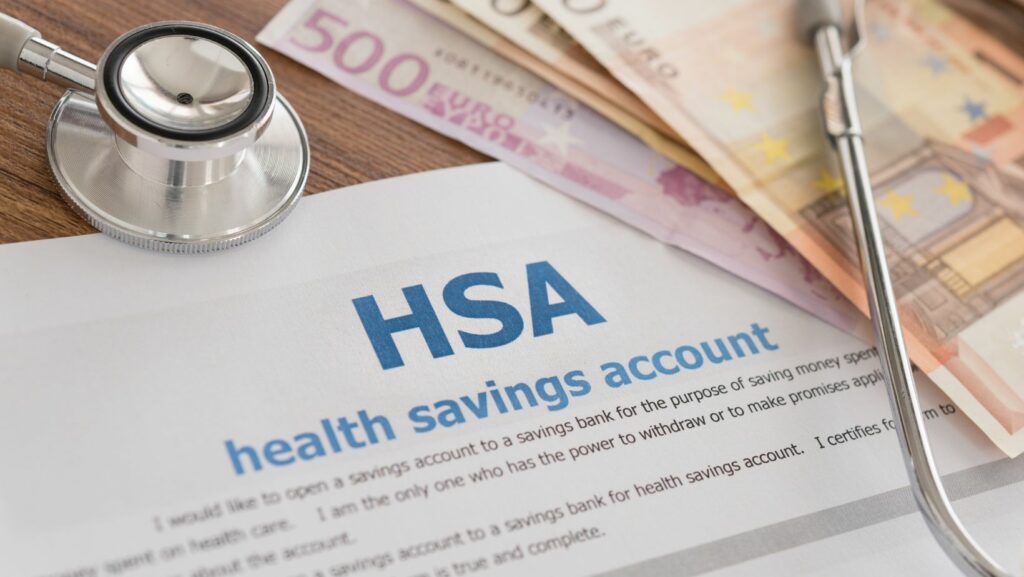
In recent years, Health Savings Accounts (HSAs) have gained popularity as a means for people to save money on medical costs and take advantage of tax advantages. HSAs will still be quite beneficial in 2024 for entrepreneurs and independent contractors who want to save as much money as possible on taxes. The tax advantages of HSAs in 2024 will be discussed in this article, along with the difficulties freelancers and business owners will have in maximizing their tax deductions and completing their tax returns.
A Comprehensive Guide to Health Savings Accounts (HSAs)
A Health Savings Account (HSA) is a savings account that offers tax advantages and allows people to set aside money for approved medical costs. Any interest or investment gains held in an HSA are tax-free, and contributions to the account are tax deductible. If an HSA withdrawal is made for approved medical costs, it is likewise tax-free.
One of the main advantages of an HSA is that, unlike a Flexible Spending Account (FSA), which has funds that must be utilized by the end of the year or forfeited, the cash in the account can be carried over from year to year. Because of this, HSAs are a great way for people to save money for future medical costs, particularly for those who expect their bills to be significant.
HSA Tax Benefits for Independent Contractors and Business Owners
Using an HSA can help freelancers and business owners save a lot of money on healthcare costs and lower their tax obligations. Because HSA contributions are tax deductible, freelancers and business owners can use them to reduce their taxable income. Significant tax savings may arise from this, particularly for those in higher tax bands.
Apart from the tax deduction on contributions, any revenues from investments or interest made on the Health Savings Account are exempt from taxes. As a result, independent contractors and business owners can increase their HSA funds without having to pay income taxes. Additionally, there is no tax associated with withdrawals made from the HSA for eligible medical costs.
In general, using an HSA can lower tax obligations while saving money on healthcare costs for independent contractors and business owners. When it comes to maximizing their tax savings and submitting their taxes, freelancers and business owners may encounter some difficulties.
Difficulties for Entrepreneurs and Freelancers
Keeping track of their income and expenses is one of the issues faced by freelancers and business owners who want to maximize their tax savings with an HSA. Because their income and costs fluctuate frequently, freelancers and business owners may find it challenging to precisely predict their tax liability and make HSA contributions.

The obligation for freelancers and business owners to pay estimated taxes on a quarterly basis presents another difficulty. In order to avoid penalties and interest, freelancers and business owners who earn income on a 1099-MISC form are typically expected to pay estimated taxes on a quarterly basis. It can be difficult to calculate these quarterly taxes, particularly for people with irregular or various sources of income.
Thankfully, there are resources available to assist self-employed individuals and company owners in estimating their self-employment taxes and pay quarterly taxes online. Through their website, the IRS provides a self-employment tax calculator that allows users to estimate their tax liability based on their income and deductions. Furthermore, online payment alternatives are offered for quarterly taxes, which makes it simpler for business owners and independent contractors to maintain tax compliance.
Using an HSA to Optimize Tax Savings
There are a number of tactics that might help optimize tax savings with an HSA, despite the difficulties that independent contractors and business owners may encounter. One tactic is to make yearly contributions to the HSA at the highest amount permitted. The highest possible contribution amounts to an HSA in 2024 are $3,650 for single people and $7,300 for families. Freelancers and business owners can optimize their tax savings and profit from the account’s tax advantages by funding their HSAs to the greatest possible level.

Using the HSA as a retirement savings vehicle is an additional tactic. After age 65, people can take money out of the HSA for any reason without incurring penalties; however, money taken out for non-medical costs will be taxed on their income. Because of this, the HSA is a useful tool for retirement savings, particularly for people who expect to have high healthcare costs in their later years.
If you’re wondering when are estimated taxes due in 2024, be sure to mark the key dates: April 15, June 17, September 16, and January 15, 2025.
In conclusion, in 2024, Health Savings Accounts (HSAs) will provide substantial tax advantages to independent contractors and entrepreneurs. People can reduce their taxable income, build their savings tax-free, and take money out of their HSA tax-free for approved medical costs by making contributions. Freelancers and business owners can optimize their tax savings by navigating the intricacies of self-employment taxes with the use of tools and methods, even though there are challenges in optimizing tax savings with an HSA. Freelancers and business owners can lower their tax obligations in 2024 and beyond while saving money on healthcare costs by utilizing the tax benefits of an HSA.


